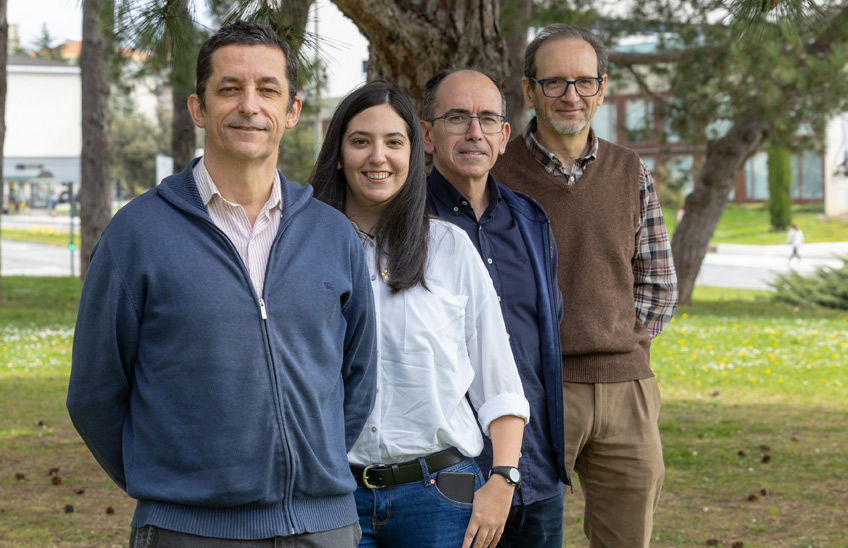MULTISENSOR: finalist as project of research and development+i Consortium in the awards of the Wine Technology Platform
The project MULTISENSOR, from the BIOMA Institute, aimed at measuring the impact of climate change on the vine and being able to act accordingly, was a finalist in the Wine Technology Platform Awards last December

08 | 03 | 2024
Spain is the country with the largest area of vineyard cultivation in the world (955,000 ha), as well as the third in terms of wine production with 30.8 Mhl in 2023. However, the increase in temperatures associated with climate change can significantly affect the viticulture sector, bringing forward ripening and affecting the quality of the wine.
The project MULTISENSOR, which measures the ripening of the vine through the transpiration and respiration of the grapes, was finalist in the modality of project of research and development consortium of the Wine Technology Platform awards. This project has been led by the Sustainable Agriculture and Biomonitoring team of the Institute of Agrobiotechnology (IdAB) of the committee Higher Education of Scientific Research (CSIC) and the group of Plant Stress Physiology Biodiversity and Environment Institute (BIOMA) of the University of Navarra.
Fermín Morales (IdAB), researcher Main of the project, stresses that the purpose of the study lies in "being able to monitor ripening in real time thanks to a non-destructive and non-invasive process". The study focuses on developing a multi-sensor prototype that allows measuring both the water loss of the bunch, a process related to the speed of ripening of the grapes, and its respiration, a process that can affect the acidity of the grape.
Thanks to the financing of international, European, national and regional funds from the Government of Navarre, this project it has been able to be developed over three years and "offers the possibility of knowing in greater depth what the impact of climate change is on the physiological processes that occur during the ripening of the grapes and that condition their quality," says Inmaculada Pascual, a researcher at the BIOMA Institute.
The team from the University of Navarra is made up of researchers Inmaculada Pascual, M. Carmen Antolín, Juan José Irigoyen, Nieves Goicoechea and Johann Martínez. Amadeo Urdiain, Mónica Oyarzun, Héctor Santesteban and Miguel Barbarin also participated as part of the technical team. Andrea Cabodevilla is currently conducting the thesis PhD in the framework of this project under the direction of Inmaculada Pascual and Fermín Morales.


